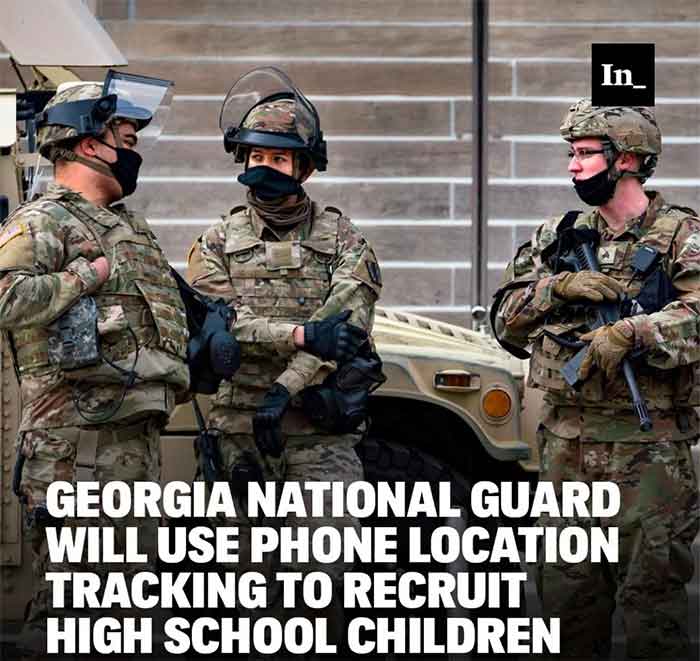 April 16 2023 / Sam Biddle / The Intercept_ - The Georgia Army National Guard plans to combine two deeply controversial practices — military recruiting at schools and location-based phone surveillance — to persuade teens to enlist, according to contract documents reviewed by The Intercept.
April 16 2023 / Sam Biddle / The Intercept_ - The Georgia Army National Guard plans to combine two deeply controversial practices — military recruiting at schools and location-based phone surveillance — to persuade teens to enlist, according to contract documents reviewed by The Intercept.
The federal contract materials outline plans by the Georgia Army National Guard to geofence 67 different public high schools throughout the state, targeting phones found within a one-mile boundary of their campuses with recruiting advertisements “with the intent of generating qualified leads of potential applicants for enlistment while also raising awareness of the Georgia Army National Guard.” Geofencing refers generally to the practice of drawing a virtual border around a real-world area and is often used in the context of surveillance-based advertising as well as more traditional law enforcement and intelligence surveillance. The Department of Defense expects interested vendors to deliver a minimum of 3.5 million ad views and 250,000 clicks, according to the contract paperwork.
While the deadline for vendors attempting to win the contract was the end of this past February, no public winner has been announced.
The ad campaign will make use of a variety of surveillance advertising techniques, including capturing the unique device IDs of student phones, tracking pixels, and IP address tracking. It will also plaster recruiting solicitations across Instagram, Snapchat, streaming television, and music apps. The documents note that “TikTok is banned for official DOD use (to include advertising),” owing to allegations that the app is a manipulative, dangerous conduit for hypothetical Chinese government propaganda.
The Georgia Army National Guard did not respond to a request for comment.
While the planned campaign appears primarily aimed at persuading high school students to sign up, the Guard is also asking potential vendors to also target “parents or centers of influence (i.e. coaches, school counselors, etc.)” with recruiting ads. The campaign plans not only call for broadcasting recruitment ads to kids at school, but also for pro-Guard ads to follow these students around as they continue using the internet and other apps, a practice known as retargeting. And while the digital campaign may begin within the confines of the classroom, it won’t remain there: One procurement document states the Guard is interested in “retargeting to high school students after school hours when they are at home,” as well as “after school hours. … This will allow us to capture potential leads while at after-school events.”

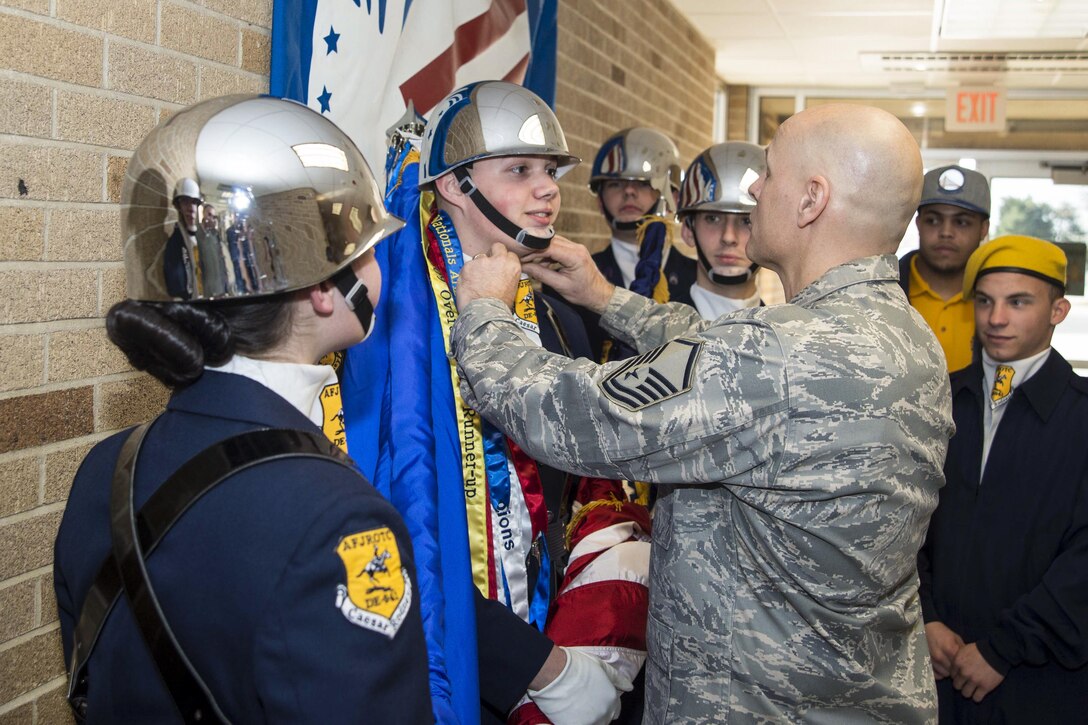
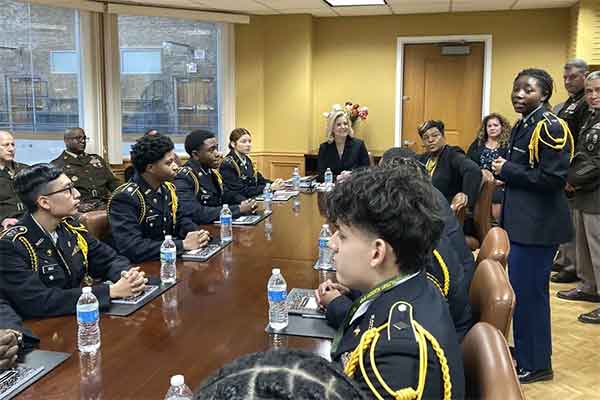 March 5, 2023 / Lolita C. Baldor / AP News - Army recruiters struggling to meet enlistment goals say one of their biggest hurdles is getting into high schools, where they can meet students one on one. But they received a recent boost from a recruiting advocate whom school leaders couldn’t turn away: the secretary of the Army.
March 5, 2023 / Lolita C. Baldor / AP News - Army recruiters struggling to meet enlistment goals say one of their biggest hurdles is getting into high schools, where they can meet students one on one. But they received a recent boost from a recruiting advocate whom school leaders couldn’t turn away: the secretary of the Army.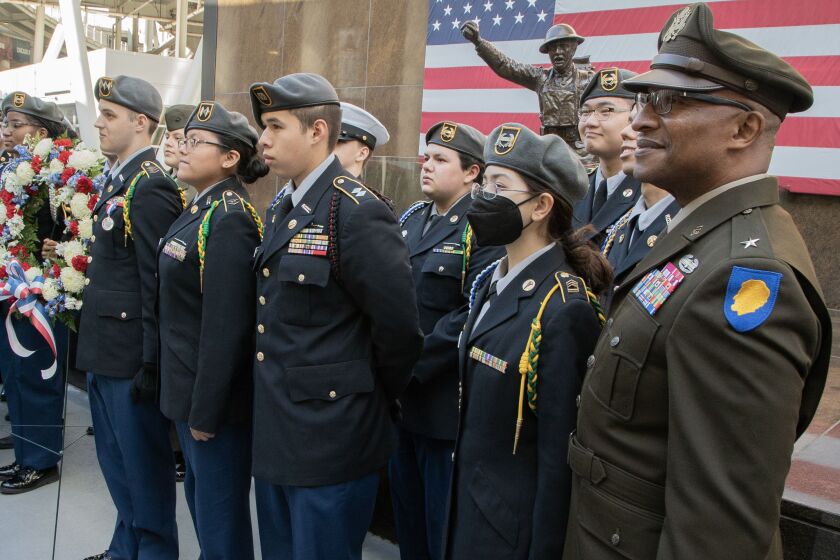
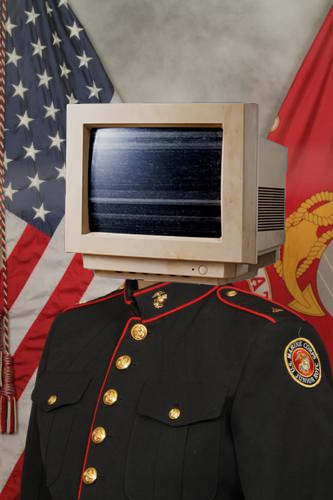
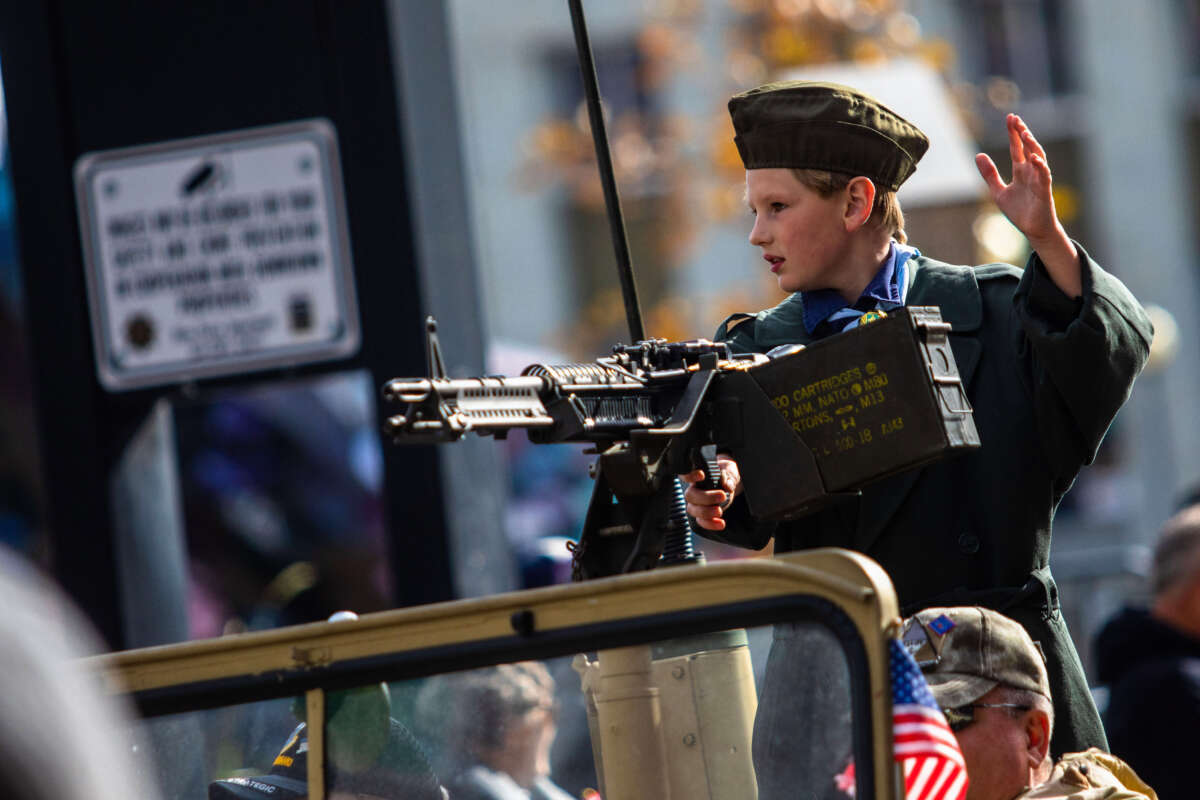 February 23, 2023 / Andrea Mazzarino / Truthout - During a Veterans Day celebration in my small Maryland community, a teacher clicked through a slideshow of smiling men and women in military uniforms. “Girls and boys, can anyone tell me what courage is?” she asked the crowd, mostly children from local elementary schools, including my two young kids.
February 23, 2023 / Andrea Mazzarino / Truthout - During a Veterans Day celebration in my small Maryland community, a teacher clicked through a slideshow of smiling men and women in military uniforms. “Girls and boys, can anyone tell me what courage is?” she asked the crowd, mostly children from local elementary schools, including my two young kids. February 23, 2023 / Andrea Mazzarino / Tomdispatch - During a Veterans Day celebration in my small Maryland community, a teacher clicked through a slideshow of smiling men and women in military uniforms. “Girls and boys, can anyone tell me what courage is?” she asked the crowd, mostly children from local elementary schools, including my two young kids.
February 23, 2023 / Andrea Mazzarino / Tomdispatch - During a Veterans Day celebration in my small Maryland community, a teacher clicked through a slideshow of smiling men and women in military uniforms. “Girls and boys, can anyone tell me what courage is?” she asked the crowd, mostly children from local elementary schools, including my two young kids.